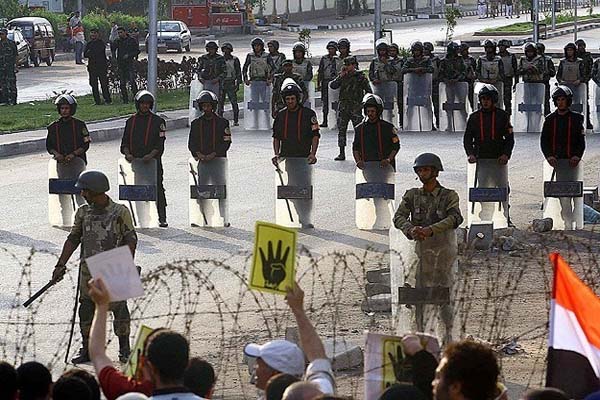“It’s clear that Egypt is experiencing a human rights crisis unprecedented in its own history, one that is dire, and that has never been seen in at least the decades we’ve covered Egypt,” said Omar Shakir, one of the authors of a scathing rights report issued this week by Human Rights Watch. In its 195-page report, the New York-based rights group accused Egyptian security forces of carrying out the "systematic" killing of 1,150 demonstrators -- including at least 817 of them, and probably closer to 1,000, during the dispersal of a sit-in at Rabaa al-Adawiya Square one year ago. The report said the killings likely constituted crimes against humanity. Hundreds of supporters of deposed Egyptian President Mohammad Morsi were killed when security forces cleared their protest camp in Rabaa Square, only weeks after the military ousted Morsi, Egypt's first democratically elected president. Following the Rabaa dispersal, Egyptian authorities have engaged in a “brute crackdown on dissent” that has grown to include a variety of groups far beyond the Muslim Brotherhood and other Islamists, according to Shakir.
Mass killings of protesters, restrictions on freedom of speech, assembly, and association, and a lack of due process have created “a crisis that is worse than anything we’d seen under Mubarak, or Morsi, or any of those that previously ruled Egypt,” Shakir said.
Deputy State Department Spokeswoman Marie Harf said the report's findings were “very disturbing” and called Tuesday for a full and impartial investigation into the events.
“It's troubling that one year later, no security forces have been held accountable in events that resulted in the deaths of approximately 1,000 Egyptians,” she said. “In order for Egypt to achieve long-term stability, security, economic prosperity, it must investigate these events in a fully transparent and credible manner.”
Shakir and the report’s co-authors called on the U.N. Human Rights Council to establish a commission to investigate all rights violations stemming from mass killings of protesters. But Charles Dunne, Freedom House’s Middle East and North Africa director, said Egyptian authorities are unlikely to submit to review.
“The Egyptian government will be non-cooperative with an international investigation, as it was with domestic investigations,” he said. But the international community should nonetheless hold the Egyptian government accountable for killings that “rivaled the Tiananmen massacre in China in 1989,” he said.
Following the release of the report, the Egyptian government said it was biased, and in service to the Muslim Brotherhood, a charge denied by the rights group.
“You can’t comment on a report that is bringing evidence and investigation, and is truly describing what evidence has been collected over a year of research and investigation in one sentence,” said Fadi al-Qadi, Human Rights Watch’s Middle East and North African spokesman. “You can’t counter this mountain of discussion and thorough review of what happened last year by saying it is biased.”
Successive rights violations and a draft law that would place unprecedented government oversight on non-governmental organizations have reduced Egypt’s political dynamism to “zero,” Qadi said.
Introduced in June, the controversial law would make all activities of non-governmental organizations subject to government veto, and would allow the government and security services to disband existing civic groups.
“There are no more spaces for political and democratically based transactions in that environment,” said Qadi.
The dire state of affairs in Egypt has led Shakir and other rights activists to call on the international community, including the United States, to suspend military and police assistance to Egypt until the country’s leaders abide by international law.
“Given the widespread and systematic abuses that are taking place, states, including the United States, should not provide the military and law enforcement aid that is used to commit grave abuses until Egypt has demonstrated a commitment to abide by binding international law,” he said.
Washington froze military aid to Cairo in October, but partially resumed it in April following reports that Russia was looking to further its foothold in the country.
Still, Shakir was adamant that Washington should refrain from aiding Egypt's security services.
"It doesn’t begin with a principle of efficacy," he said. "It begins with a moral imperative, which is that aid should not be used for further abuses. There is a need to divorce the question of efficacy from the question of moral imperative."



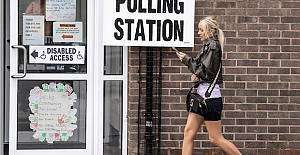 Advice for Enfield residents ahead of the General Election
Advice for Enfield residents ahead of the General Election Sunak promises tax cuts, economic stability, Conservative Party election manifesto
Sunak promises tax cuts, economic stability, Conservative Party election manifesto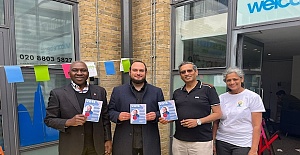 Ertan Karpazli, an independent MP candidate for the Enfield North constituency
Ertan Karpazli, an independent MP candidate for the Enfield North constituency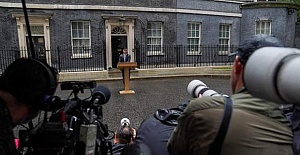 Rishi Sunak announces a general election in a statement outside Downing Street
Rishi Sunak announces a general election in a statement outside Downing Street Residents of Spanish island of Mallorca launch initiative to thank tourists amid protests over mass tourism
Residents of Spanish island of Mallorca launch initiative to thank tourists amid protests over mass tourism Srebrenica Remembered, Lessons for Justice and Peace! YEE London held a reflective event
Srebrenica Remembered, Lessons for Justice and Peace! YEE London held a reflective event British Premier Keir Starmer to reset UK-EU relations with high-profile meetings
British Premier Keir Starmer to reset UK-EU relations with high-profile meetings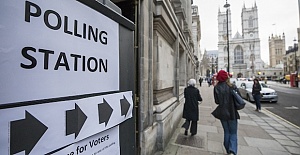 Voters head to polls for UK general election
Voters head to polls for UK general election The Swiss official will take charge of the match between Real Madrid and Atalanta in Warsaw
The Swiss official will take charge of the match between Real Madrid and Atalanta in Warsaw Applications are now open for Walking and Cycling Grants London until 9 September 2024
Applications are now open for Walking and Cycling Grants London until 9 September 2024  Two Circles also appointed as exclusive media sales agency for UEFA Women’s Champions League
Two Circles also appointed as exclusive media sales agency for UEFA Women’s Champions League  England manager Gareth Southgate has resigned two days after defeat by Spain
England manager Gareth Southgate has resigned two days after defeat by Spain Joyce and Snell's planning application gets stamp of approval
Joyce and Snell's planning application gets stamp of approval The amount of bounce back loans fully repaid is just %13
The amount of bounce back loans fully repaid is just %13 Petrol prices higher than they should be, says RAC
Petrol prices higher than they should be, says RAC UEFA and Mastercard renew UEFA Champions League partnership
UEFA and Mastercard renew UEFA Champions League partnership




